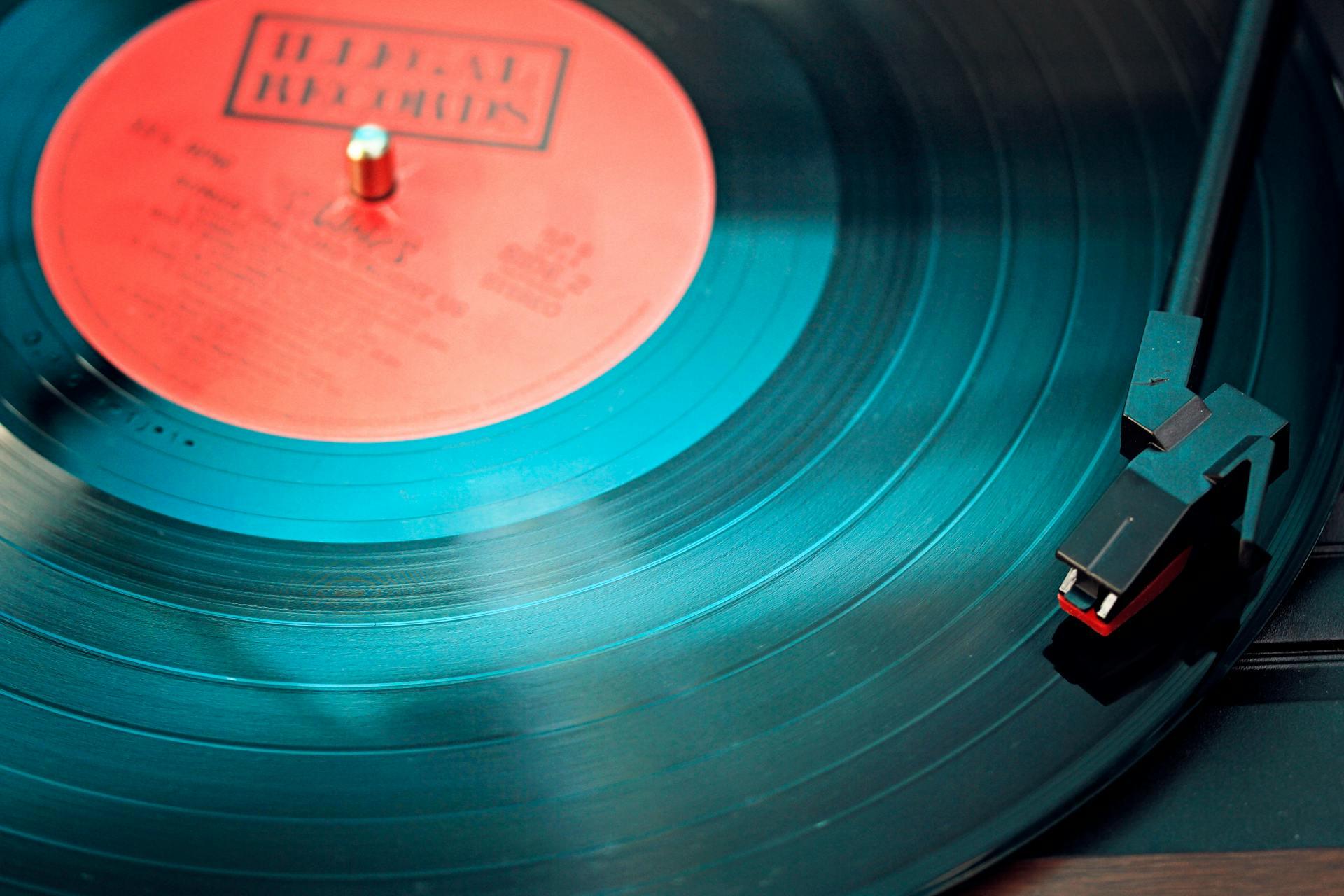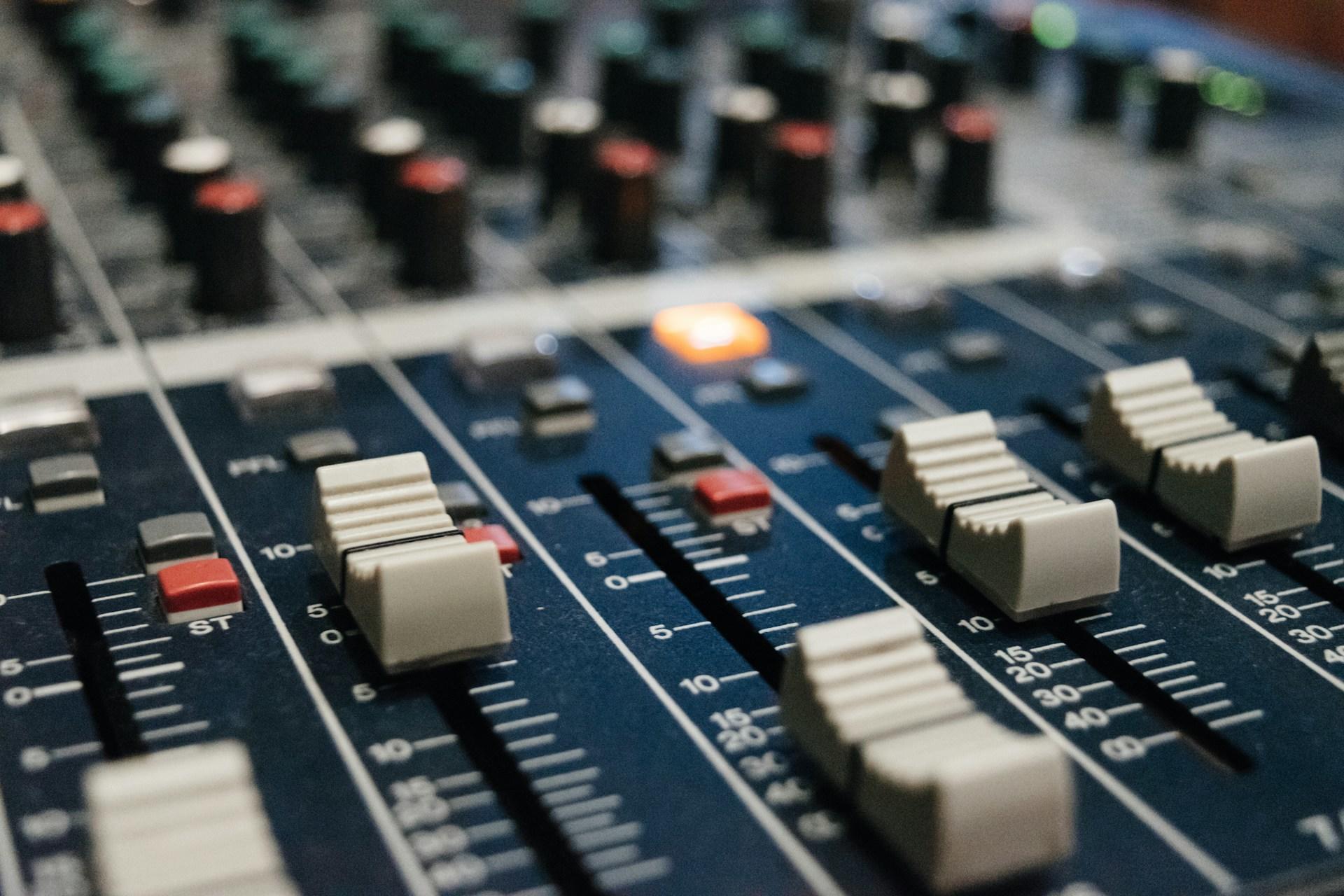Behind every great song lies a talented music producer who brings it to life. Producers are just as much a part of a finished track or album as the artists who perform it (and sometimes they are one and the same!).
Producers are behind the scenes, shaping the sound, perfecting the mix, and transforming raw ideas into hit tracks.
Today, we’ll break down the basics of the influential and crucial world of music production. Whether you're an artist who wants to learn about producing your own work or finding a producer to help you or an aspiring producer looking to break into the industry, you’ll learn about the role of producers in music-making and how you can get involved.

What is the Role of a Music Producer?
Music producers play a crucial role in the creation of music. They act as the guiding force behind a recording, ensuring that the final product is a true reflection of the artist's vision. A skilled music producer brings together various elements of a song, from the lyrics and melody to the instrumentation and arrangement, to create a cohesive and compelling piece of music.
To achieve this, music producers work closely with artists, helping them refine their ideas and translating them into a tangible form. They provide valuable feedback, suggest changes, and make creative decisions that shape the overall sound of a track. Music producers are not just technicians; they are collaborators and visionaries who bring out the best in an artist.
The producer uses technology to edit studio recordings into finalized tracks that can be distributed via streaming and physical copies.
Why Become a Music Producer?
If you're passionate about listening to music, making music, experimenting with sound, and being involved in the music scene, music production is a perfect career choice!
Combine Your Passions of Art, Science, and Technology
The field tends to be full of creative expression, experimentation, and the ability to literally shape an artist’s sound into something amazing. It gives you the freedom to experiment with different sounds, genres, and styles, pushing the boundaries of what is possible. Whether you're working with a solo artist or a band, you have the chance to bring their artistic vision to fruition.
It also comes with a healthy portion of technical and practical requirements, balancing between artistic freedom and scientific processes, making music production a unique and fulfilling pursuit!
Become Involved in New and Exciting Projects
Music production offers a dynamic and ever-evolving work environment. No two projects are the same, and each one presents its own set of challenges and rewards. The constant innovation in technology and the music industry ensures that there is always something new to learn and explore, keeping the job fresh and exciting.
Networking Opportunities
If you’re a social butterfly extrovert who loves making connections, prepare to be dazzled by the amount of opportunities you have to meet amazing people in the music and entertainment industries!
Even if you’re more of a reserved wallflower, you’ll still be able to meet many people worth your time and build an amazing network of connections and even real friendships.
Creatives flock together, so even if you’re not thrilled about business networking, you can look forward to meeting fellow artistic minds and waxing poetic about your musical interests together.
Financial Security
While it may take time to establish yourself in the industry, successful music producers can earn a lucrative income through album sales, royalties, and production credits. Additionally, the rise of streaming platforms has created new revenue streams for producers, further increasing the earning potential.

The Music Production Process
So, what do music producers do in the music-making process?
How does music go from being a glimmer of an idea in a musical artist’s head to being a song streamed on Spotify or manufactured into a CD and loved by audiences?
To take an idea from a concept to a finished piece of art requires many skills: artistic, creative, technical, practical, and more.
The music production process is a series of stages in the life of a song that allows musicians to create their vision with help from another artist who knows about the practical elements of music-making. Here's how music producers produce music.
Pre-Production
This is where the producer and the artist discuss the vision for the song, brainstorm ideas, and lay the foundation for the project. It involves tasks such as selecting the right key, tempo, and instrumentation, as well as mapping out the arrangement.
Recording (Production)
Once the pre-production phase is complete, it's time to move on to recording. This is where the magic happens as the artist lays down their vocals or instruments in the studio. The producer plays a crucial role in ensuring that the recording captures the desired performance and emotion. They guide the artist with feedback and encouragement, make technical decisions regarding microphone choice and placement, and oversee the overall quality of the recording.
Production is alchemy. You’re turning a simple beat into pure gold.
Mark Ronson
Post-Production
After the recording phase comes the editing and mixing stage. This is where the producer polishes the individual tracks, making sure they blend seamlessly. They remove any imperfections, adjust the levels and panning, and add effects to enhance the overall sound. Mixing is a delicate process that requires both technical expertise and creative decision-making skills, as the producer strives to create a balanced and immersive sonic experience.
This is where producers can really influence the sound of a song and add their own artistic interpretations to bridge the gap between the vision and the real thing.
Mastering
The final step in the music production process is mastering. This is the last chance to make the song shine before it's released to the world. The mastering engineer, who may or may not be the same person as the producer, applies the finishing touches to the mix. They ensure that the song sounds great across different playback systems, optimize the overall volume and dynamics, and add any final enhancements.
Then, the song/album is ready to be distributed across all the different platforms available, including physical like CD, cassette tape, and vinyl.

How to Start Making Music
If you’re looking to learn about making your music, become a song producer, or an artist producer, there are a few things you’ll need to know and learn.
How to Make Music
When you’re learning how to make songs and work on your music producing skills, you will first need to learn the basics, like music theory, how to sing, and how to play instruments.
You don’t necessarily need formal training to gain this knowledge, but it’s possible to earn a music producer degree in music production or the recording arts.
Come up with the idea of a song by exploring themes, moods, motifs, and symbolism as well as song structures for lyrical and instrumental purposes.
You can work with other songwriters, or you can develop your own creative process. There is no one right way to create art!
How to Record a Song
When it comes to actually recording the song at a high quality, you need to either invest in good-quality recording devices or rent time at a recording studio.
You'll need a computer with sufficient processing power and storage to handle your music projects. A digital audio workstation (DAW) is the heart of your studio, allowing you to record, edit, and arrange your music. Studio monitors and headphones are essential for accurate sound reproduction, enabling you to fine-tune your mixes.
Consider adding MIDI controllers, synthesizers, and drum machines to expand your creative possibilities.
Research the techniques and practical information you need to know before investing your time and money into buying equipment or renting time.
Using good quality microphones, you’ll record the different layers of the song separately into individual tracks. This allows you to edit each layer of the song individually in post-production and makes a better-sounding final product.
How to Produce Music
After you’ve recorded your tracks, you’ll need to upload them into music producer software like GarageBand, Ableton, Audacity, or FL Studio.
From here, you’ll edit the waveforms, adjust the gain, adjust the sound ratios, add filters, and more to make the compilation of tracks sound just like your envisioned product.
After you’ve edited it the way you like, you’ll need to export your audio file into a shareable file type and start uploading it to the internet or send it to a record producer!

Types of Music Producers
Since music production is such an intricate process, many music producers come to specialize in certain aspects of producing rather than always taking on every aspect of an entire project.
All producers share a common goal of bringing music to life, no matter what they specialize in. As you develop your music production skills, you can start to lean into the area(s) of music production that you like best. Here are a few different types of music producers:
Record Producers
These producers work closely with artists to oversee the entire production process, from pre-production to mastering. They are involved in every aspect of the song's creation, guiding the artist's vision and making creative decisions along the way. Record producers often have a deep understanding of various musical genres and are skilled at bringing out the best in artists.
Beatmakers
Beatmakers specialize in creating instrumental tracks (beats) for artists to rap or sing over. They excel in programming drum patterns, crafting catchy melodies, and creating unique sonic landscapes.
Mixing Engineers
Mixing engineers focus on the technical side of music production, ensuring that all the individual tracks in a song blend together seamlessly. They adjust levels, panning, and apply effects to create a balanced and cohesive mix. Mixing engineers require a keen ear for detail and a deep understanding of audio processing techniques.
Mastering Engineers
While not always considered traditional music producers, mastering engineers play a crucial role in the final stage of the production process. They apply the finishing touches to the mix, ensuring that the song sounds great across different playback systems. Mastering engineers have a trained ear for subtle nuances and possess specialized equipment and software to optimize the overall sound.
Sub-types of music producers include: audio engineer, recording engineer, live sound engineer, remix producer, film/TV/video game scoring producer, mastering producer, and many more!
How Can You Learn Music Producing?
To learn the skills and techniques required for music production, you can seek out information in several different ways.
- Degree Program: Many producers have a Bachelors or even a Masters degree in something related to music production or music management
- Certificate Program: You can take a specialized program to teach you just the aspects you really need and how to master them, like music theory or how to use a certain software
- Self-Teaching: Many musicians and people in the music industry are self-taught because their passion leads them to learn the skills they need
- With an Instructor or Coach: A personal coach can help you learn specific skills in a practical setting, especially skills like music theory, lyric writing, notation, instrument-playing, and vocal coaching. You can find great music production courses to help you with whatever part of music production you need support with right here on Superprof!
Unlock Your Creative Journey to Becoming a Music Producer
Music producers are just as much a part of the musical creation process as the artists who perform them. Some music artists self-produce, and some producers learn music so they can self-produce, too.
Since the music industry is a giant mixture of creativity, technology, and business, it’s important that producers be able to see the bigger picture and make all the stars align when making music.
You can learn any number of skills and techniques in the music industry, including music production, when you sign up for a music producer course with a professional instructor on Superprof. Classes are available at your convenience with a music production online course in-person with local coaches and teachers who are passionate about helping students achieve their dreams!
Learning how to become a producer is no doubt a long process, but if you’re passionate about music and working with artists in the industry, there’s hardly a better place for you to be!
Summarize with AI:




















